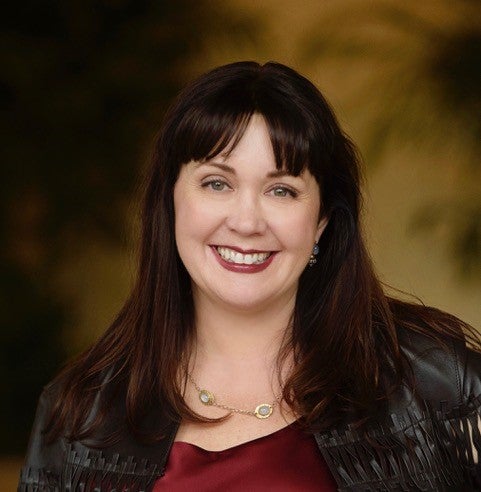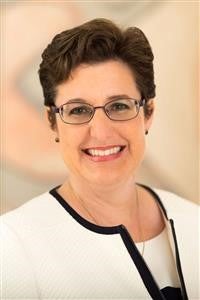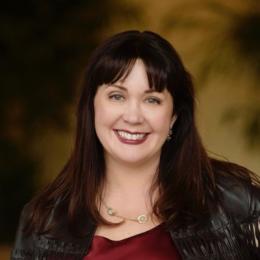In this series of articles, Amii Barnard-Bahn interviews top in-house leaders on their views of leading during the pandemic, return to work, and tips for success.
Amii Barnard-Bahn recently had the pleasure of sitting down with colleague and friend Karen Sullivan, VP, senior counsel for human resources at Bank of the West, based in San Francisco.
Working during the pandemic

Amii Barnard-Bahn: Karen, how has this pandemic impacted you and your team? You’ve been spread across multiple time zones, with a new general counsel having started on the East Coast, and new head of human resources having begun in Europe, and legal and HR colleagues in all US time zones. What type of work arrangements has your team made?

Karen Sullivan: While most members of our legal team, such as attorneys, paralegals, and admins, were fully remote during the pandemic, there were some who requested to work full-time in the office and/or a certain number of weeks in the office on a regular basis.
Additionally, from time-to-time individuals had a need to go into the office to perform certain functions. The company took care to ensure careful communications, scheduling, mask mandates, health attestations, and safety protocols to manage the number of people at any location and the opportunity to maintain social distancing protocols.
Leadership skills
Barnard-Bahn: It sounds like you made a number of accommodations to get the work done! In such a hybrid environment, what do you find is the top leadership skill needed to work effectively as in-house counsel?
Sullivan: Communication has been paramount. It’s taken mindful communication skills to sustain positive collaboration, engagement, and support of work and teams. Leaders have had to navigate modifications to how work is being performed, family/life demands, and physical and emotional needs of both themselves and their team members.
Leaders and others had to become more flexible in how and when they communicated. Many experienced variances in when people were available, as people navigated work/life conflicts, work hours for many changed, lengthening the workday and days worked. There were surges in email use, as well as increased use of WebEx as an alternative to in-person meetings.
Additionally, as more individuals experienced increased obligations for children and family members, as well as illness and personal tragedies, it was critical that not only people’s individual work needs, but also life and emotional needs were being supported.
This has meant helping all team members to be sensitive and collaborative with each other, mindful of one another’s personal challenges, and limitations, and times where some might need to carry extra weight, without breaching sensitive privacy issues. All this required adaptive communications skills — more and different outreach, sensitivity, and support.
It’s taken mindful communication skills to sustain positive collaboration, engagement, and support of work and teams.
I’d secondarily note that organization skills have also been taxed. Working outside the workplace, on varying time schedules, and with different supplies, equipment, support, and access to others, has placed a premium on the ability to carefully organize and plan work from start to finish.
Bank of the West has four core values; We Work Together; We Develop; We Innovate; and We Care. Our team heavily leveraged each of these core values of “We Care” and “We Innovate” during these times.
New hires
Barnard-Bahn: Have you hired new team members during the pandemic?
Sullivan: We’ve welcomed a few legal and regulatory team members, during the pandemic. Without regular, in-person and direct access to peers to demonstrate processes and answer questions in the moment, it’s been more challenging to learn and gain comfort with systems and processes and to develop the same depth of relationships as quickly. Fortunately, our general counsel has demonstrated strong leadership in the areas of reaching out, developing relationships, and building trust.
Barnard-Bahn: Onboarding new employees, especially those in support roles, has been a challenge that many have faced. In a hybrid environment like this, what qualities do you look for in a new hire?
Sullivan: I look for four things:
- Written and verbal communications skills;
- Capacity to build and support interpersonal relationships;
- Organization and project management skills; and
- Adaptability — demonstrated ability to learn new skills, systems, and ways of doing things.
Communication tools
Barnard-Bahn: What tools have you used to communicate with your team? Do you have a favorite?
Sullivan: Phone, email, and WebEx. I think a combination of all three is important. Short emails are critical to keep things moving forward. WebEx is invaluable to provide moments of facial connection, bonding, and banter and to allow a level of reading team members’ body language during both challenging meetings and meetings for the purpose of team building. We’ve used it to enable sharing of documents to foster understanding during meetings, and also for sharing games, videos, and images to keep the personal aspect of our team relationships alive.
However, incessant video calls can easily lead to fatigue and image insecurity.
However, incessant video calls can easily lead to fatigue and image insecurity. Studies are showing this particularly impacts women, as more time is spent staring at faces and one’s image. This makes phone calls a critical alternate option to be able to speak, hear familiar voices and intonation, and delve into deeper discussions and problem-solving than can readily be done by email.
Additionally, the camera can feel unnecessarily intrusive in one’s home environment, particularly at different times of day and for individuals unable to shut themselves off from the sites and sound of family.
Image fatigue
Barnard-Bahn: All great points. Variety is key, and you raise an important point regarding image fatigue, particularly for women, who have a higher tendency to (negatively) judge their appearance than men do. What is one effective communication practice you’ve adopted?
Sullivan: I’ve tried to ensure that I’ve moved beyond email and had a phone or video conversation with all those I’m partnering with on critical projects each week. I’ve built a “water cooler” moment into my weekly calendar with my support staff, and I try to reach out to at least one person each week to talk about non-work matters. I find this helps ensure I’m mindful of what is happening outside of work and helps build the trusting relationships necessary to our collaboration.
Barnard-Bahn: I love the “water cooler moment” habit you’ve adopted. That kind of informal connection is key to interpersonal bonding and forming healthy work relationships. In contrast, in your experience, what one interpersonal behavior can lead to conflict in a hybrid work environment?
Sullivan: A tendency to draw lines regarding “my work” vs “your work” can undermine the necessary trust and collaboration and create tension and resentment that is harder to break through when people aren’t seeing each other daily in the office.
Setting boundaries
Barnard-Bahn: What is one habit you or your team has adopted to set healthy work/personal boundaries?
Sullivan: I think we continue to struggle with this! We’ve talked about the benefits of setting fixed start and end times, “dressing” for work, taking breaks to walk or talk with people outside of work, and ensuring that you break to eat at regular mealtimes.
But I think the pandemic in particular has led to many finding it challenging to set or maintain boundaries as they start and stop work throughout the day to address family needs and extend the hours and days in the week so that they are working to accommodate those needs. It’s common for people to be emailing at unusually early and late hours or multi-tasking by taking work calls while driving children to school, doctor appointments or COVID tests, or other events.
Barnard-Bahn: It has been challenging to set boundaries. I’ve worked with clients on this, and tried to set them myself — and have every intention of committing, but then life intervenes. Like taking a walk break every day at a certain time, but then my daughter’s school goes back to in-person and one of us needs to do pickup. What one piece of advice would you give to other in-house counsel to navigate the transition “back-to-work”?
Sullivan: Be patient. Consider what changes in how you’ve done work make sense to continue, but also clearly communicate what is expected to change in the transition. I anticipate that many have operated with a heightened level of tolerance and flexibility, and as things “return to normal,” the pressure may build to begin addressing behaviors that may have led to decreased efficiency or effectiveness. It will be important that folks know what to expect.




